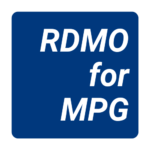Data management plans (DMPs) are increasingly required by funding agencies – either as part of the research proposal or as an early project deliverable. Costs for data management (software, hardware, technical expertise) are often eligible for project grants. Even without a formal obligation, you may do yourself a favour by creating a data management plan for your own.
Data management plans should not be seen as bureaucratic hurdles or compliance “checklists”, but as an integral part of research practice. They are (or should be) living documents that might require revisions or updates as research progresses: Details become clear, initial plans may change, new data are acquired and processed, unforeseen collaboration opportunities could arise; as experience has shown.
Aspects of DMPs
Data management plans usually cover the following aspects:
- Data description and collection
- Which data will be generated (types, formats, volume)? Types could include e.g. numeric, textual, image, audio, video. The filename extension often indicates formats. Proprietary formats (created by scientific instruments and/or specific software applications) should be converted or at least be convertible into open and standard formats. Volume can be described in terms of the number of files as well as the total file size.
- Will the project re-use existing data? If not, has this possibility been explored?
- Documentation and metadata
- Which information will be attached to the data? What is needed for others (also beyond your own scientific field) to find, understand, and potentially re-use your data? Documentation might include the definition of variables, details of methodology, and approaches to quality control.
- Metadata should be comprehensive and follow community standards whenever available and applicable.
- File organization and nomenclature might be described in this section.
- Storage and backup
- Where will data be stored during the project? At your institute? In Keeper? At the GWDG? At the MPCDF? Or somewhere else? How and how frequently will data be backed up? Multiple backups at different locations are strongly recommended.
- How are data, that are generated in field research, are transferred to more secure locations?
- How will data be recovered in case of incidents?
- How will data be protected to prevent unauthorized access, particularly for sensitive data (e.g. containing personal information)?
- Legal and ethical requirements
- Concerning personal data, how can compliance with applicable regulations and laws (e.g. GDPR) be assured?
- Are there other restrictions on sharing data, such as intellectual property rights, purchased data, or plans to claim patents?
- Data sharing and long-term preservation
- Which data will be made freely available, and when? How will potential re-users find out if, where, and how datasets are available? Will data be deposited in a repository or shared by other means?
- Will data be assigned with persistent identifiers? Will licenses clarify conditions of re-use?
- Will access to data be limited, e.g. restricted to certain communities or subject of data sharing agreements?
- Also, for data that are not shared: How is long-term preservation assured and for how long (beyond the lifetime of the project)?
- Responsibilities and resources
- Who will be responsible for data management, implementing the DMP and updating it? This could be one or several named person(s) or an institution. Different parts of the data management process may be spread over several roles.
- How are responsibilities defined and/or split in collaborative research projects?
- Which resources (e.g. software, hardware, technical expertise, expected amount of effort) are required for data management? Which costs are involved, and how will these be covered?
This information is often preceded by administrative data (e.g. funder, project, grant reference number, principal investigator, version of DMP). The level of detail appropriate or required in DMPs will differ between projects and scientific fields, particularly regarding data documentation.
Tools for the Creation of Data Management Plans
These online tools are available:
Argos by OpenAIRE and EUDat. The service is an open platform for Data Management Planning, which simplifies the management, validation, monitoring and maintenance of DMPs.
DMPonline by the British Digital Curation Centre (DCC). The webpage includes templates by mostly (but not only) British funding agencies, as well as a wide range of public DMPs.
DMPTool by the University of California Curation Center (UC3) also has templates and sample plans, mostly for US funding agencies. The related blog includes a discussion of efforts to make DMPs machine-actionable.
Data Stewardship Wizard by the Elixir is one of the recommended tools for DMPs by the European Commission.
RDMO for MPG by the Max Planck Digital Library. This service for MPG researchers supports the organisation of data management and the writing of data management plans for various funding organisations.
GFBio (German Federation for Biological Data) also has a Data Management Plan Tool. You can obtain feedback and support from their experts on the draft version of a DMP.
More Tools
Data Management Costing Tool by the UK Data Archives (herewith the necessary resources can be calculated)
DMP Examples Documents
Recent DMP Templates
Horizon Europe DMP Template by the European Commission, 2021
Horizon 2020 DMP Template by the European Commission, 2018
ERC Grants DMP Template by the European Research Council, 2021
DMP Template by the Swiss National Science Foundation, 2017
Further DMP Examples
Digital Curation Centre Example DMPs and Guidance
LIBER Europe DMP Catalogue
Examples for Horizon 2020 DMPs by the University of Vienna
Further Reading
DLCM Data Management Checklist (detailed guidance by Swissuniversities DLCM – Data Life Cycle Management).
European Research Council (11th August 2021): Open Research Data and Data Management Plans – Information for ERC grantees, version 4.0, https://erc.europa.eu/sites/default/files/document/file/ERC_info_document-Open_Research_Data_and_Data_Management_Plans.pdf.
Hausen, D. et al (2022): Datenmanagementpläne in der Forschung – Von Grundlagen zu Grundfragen, In: Bausteine Forschungsdatenmanagement 1/2022, pp. 103-20, doi:10.17192/bfdm.2022.1.8366.
Helbig, K., Paul-Stüve, T., & Rex, J. (2021): DMP-Toolguide, doi:10.5281/zenodo.4632308.
Michener, W. K. (2015). Ten Simple Rules for Creating a Good Data Management Plan. PLoS Comput Biol 11(10): e1004525. doi:10.1371/journal.pcbi.1004525 (general article, not specific for the field of computational biology).
Science Europe (2021) Practical Guide to the International Alignment of Research Data Management (includes core requirements for data management plans and guidance).
Smale, N., Unsworth, K., Denyer, G., & Barr, D. (2018). The History, Advocacy and Efficacy of Data Management Plans. Scientific Communication and Education. doi:10.1101/443499.
Lates News relating to Data Mangement Plans
- Software Management Plan Template for the RDMO now available

- Data Management Plans for Horizon Europe and ERC Grants

- RDMO for MPG – A New Service for Organising Data Management and Writing Data Management Plans

